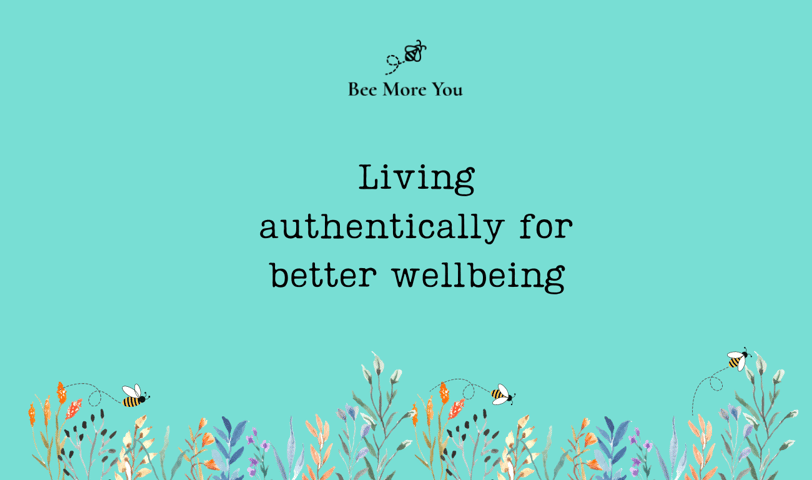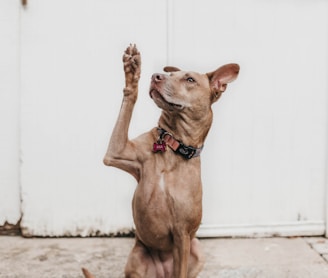Authenticity for wellbeing
What is authenticity and why does it matter for wellbeing? This article explores the psychology of authenticity, it's impact on wellbeing, and why it can be hard to live authentically in today's fast-paced world.


What is authenticity?


Authenticity is important for wellbeing because it lets us live in a way that is in alignment with who we really are. When we are authentic, we are not putting on a face, or acting out a role. We are not trying to big ourselves up or appear interested in something we are not.
We are comfortable with who we are, and we are not afraid to let others see that.
Authenticity can be tricky to define because it’s different for everyone. According to the Cambridge dictionary it is the quality of being real or true, but what does that mean? Psychology considers it to be a complex variable – it’s how well you feel able to express your self-identity in your behaviours, given the context you are in.
Ultimately though, authenticity is simply about being
true to yourself. You are clear about who you are and what you believe. You can be yourself and stand up for those beliefs and values in all situations – regardless of who you are with.
Sounds simple, but in our modern world with airbrushed highlight reels, filtered news, and fast paced lives it can be a challenge. We become used to being different versions of ourselves for different situations, and without time to reflect and think, we can lose sight of who we truly are, and what we want


So how do we start to live more authentically?
As we might expect for something so complex, there is more than one moving part to consider. However, out of all the different strategies out there we have identified eight which make the biggest difference to our coaching clients – and to us! These include:
· Disconnect to reconnect
· Define and embrace your strengths
· Notice and name emotions
· Explore your values
· Acknowledge internal versus external drivers
· Set boundaries
· Pursue your passions
· Build your social support system
In part 2 of this series, we will bring you a bumper round up of practical suggestions and useful links for each of these different strategies so you can start to take steps to living more authentically – and improving your wellbeing to boot!
Living authentically isn't always easy. But before you picture yourself like Jim Carrey in "Liar Liar," let's clear something up: being authentic doesn't mean you have to spill your every thought or feeling all the time.
Authenticity involves a delicate balance called self-monitoring. We can think of self-monitoring a bit like a spice; a bit enhances the flavour, but too much ruins the dish. Excessive self-monitoring can make you seem phony, while too little can make you seem inflexible.
What is the psychology behind authenticity?
According to Wood and colleagues authenticity is made up of three components. The first is self-alienation – or how well you feel you know and understand yourself. The second is authentic living – or feeling like your behaviours reflect your true feelings. The final component is accepting external influence – or how much you change your behaviour to fit in with situations or other people around you. Higher levels of the first two point to more authenticity, whilst lower levels of the third are required for authentic living.
People who scored higher on this measure of authentic living reported greater happiness, higher self-esteem, and more positive emotions. They also report better relationships and more personal growth.
Authenticity can be role specific as well as general, and research suggests that the more authentic you feel in a role (friend, employee, student etc.) the less neurotic and the more satisfied they were. In addition, when participants felt more authentic in general (regardless of different life role authenticity) they reported higher self-esteem, lower stress, anxiety, and depression.
Whilst studies such as these can’t prove that authenticity causes greater wellbeing, they suggest it has a key role to play.
Why is authenticity important for wellbeing?
This brings us a lot of benefits. Not least is a sense of ease with the world.
How would you show up tomorrow if you were not afraid of being judged by others and found wanting – because you were completely comfortable with who you are and what you do?
It gives us a sense of confidence. It can build self-esteem because we feel more confident and worthy of love and respect – if you love yourself, it’s infinitely easier for someone else to love you as well. Showing up authentically can strengthen relationships. People love and trust people who are behaving authentically. It encourages people to open up and be authentic back, which leads to deeper relationships. Not surprising, it can also lead to a happier and more fulfilled life. We are not wasting time and energy trying to be someone else. We can be ourselves and be happy with ourselves.
Why is it hard to live authentically?
Adapting to your environment is natural, and not expressing every thought is normal. However, remember that true authenticity often requires a safe psychological space. In unsafe situations or when facing discrimination, it might be necessary to hide parts of yourself for protection. Our brain's limbic system is responsible for our fight, flight, freeze, or fawn response. When triggered it tries to keep us safe and that is often by fitting in and not rocking the boat. This means we need to invoke conscious effort to override our natural desire to take the easier path.
Feeling disconnected from yourself is common, especially in our fast-paced, success-driven lives. We make choices early on, like school subjects, that shape our futures. Years later, we may wonder if this path is genuinely what we want.
The caregiving role, whether as a parent, spouse, child, or friend, often leads to putting others first. Losing sight of your own wants and needs can trigger a midlife crisis as you yearn for self-expression.
If you're used to being everything to everyone, it can feel selfish to pause for self-care. It can feel like you are letting people down – particularly if you are a people pleaser by nature. But like securing your own oxygen mask on a plane before helping others, taking time for yourself enables you to authentically show up for others. It's one of the greatest gifts you can offer because they get the best, nurtured version of you.


